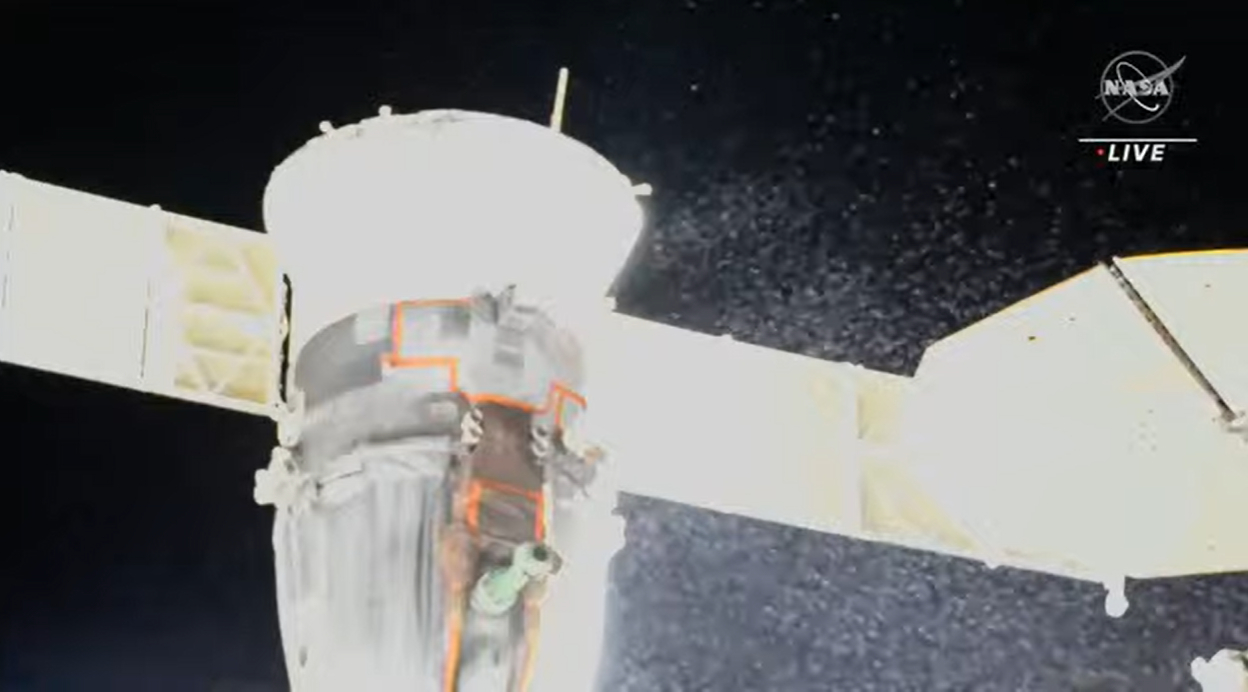Meteoroid strike may have caused Soyuz spacecraft leak, Russian state news reports
The Russian space agency has not yet disclosed a cause for the leak that sprung on a Soyuz spacecraft Thursday (Dec. 15), although a state agency speculated it might be a meteor.

The Russian space agency will decide by the end of December whether to fly a space station crew back to Earth in a damaged Soyuz spacecraft.
The Russian federal space agency Roscosmos stressed there is no immediate danger regarding the damaged Soyuz spacecraft, which suddenly leaked coolant while docked to the International Space Station on Thursday (Dec. 14), potentially leaving three crew members without a lifeboat in case of trouble.
Roscosmos said in Telegram post(opens in new tab) on Monday (Dec. 19) that a special commission is in place to determine whether to return two cosmonauts and NASA astronaut Frank Rubio back to Earth on the damaged Soyuz, or to send up a replacement craft (which would take no less than 45 days).
"There is no need for emergency evacuation at this time," Roscosmos officials stated in Russian (translation provided by Google). The space agency did not name a cause for the leak, although Russian state media agency TASS recently speculated(opens in new tab) it might have been a meteoroid associated with the ongoing Geminid meteor shower.
If the crew cannot fly home aboard the beleaguered craft in March 2023 as planned, the Soyuz MS-23 spacecraft "can be quickly prepared for launch to replace the [damaged] Soyuz MS-22," Roscosmos officials wrote.
"Soyuz MS-23 is located at Baikonur and has already passed part of the tests before the scheduled launch in March," Roscosmos officials added, referring to the usual Kazakhstani launch area controlled by Russia, which services the ISS for both cargo and crewed launches.
The Soyuz MS-23 may be flown autonomously to the space station in as little as 45 days to replace the damaged spacecraft, Russia said, although one space safety expert told Space.com they would likely want a cosmonaut at the helm.
"I don't think Soyuz can dock completely autonomously. I believe that at least one person has to be on board," said Tommaso Sgobba, who is the executive director of the International Association for the Advancement of Space Safety (IAASS) and a former head of spaceflight safety at the European Space Agency (ESA).
Russian cargo ships do dock autonomously to the ISS, although the country experienced two seriously damaging collisions with earlier versions aboard the space station Mir in the 1990s.






















